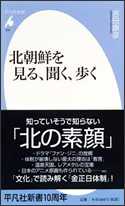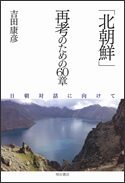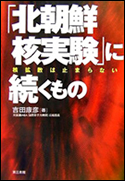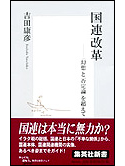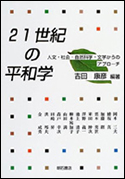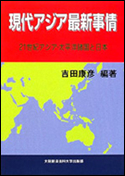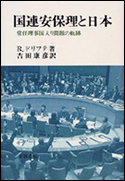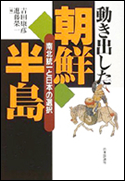RECENT MOVES
Chosen-Soren (the National Federation of Pro-Pyongyang Korean Residents in Japan), now faces crisis over its own survival in the history of more than half a century.
Chosen-Soren is indeed on the verge of collapse and dissolution in the wake of the abduction case, which involves a dozen of Japanese citizens kidnapped by North Korean intelligence agents, and the subsequent tough policies adopted by the Japanese Government toward Chosen-Soren as a counter-measure and an attempt to draw a compromise from Pyongyang over the abduction case.
The Japanese Government regards the abduction case unsettled, on the assumption that eight out of the 13 abductees, whom Pyongyang publicly says all dead, are still alive, since the remains have not been returned to their families. Feelings of the Japanese people are therefore sharply antagonistic and hostile toward North Korea, as well as Chosen-Soren. Against this background, the National Police Agency, strongly backed by Prime Minister ABE Shinzo, had fastened its control over the pro-Pyongyang Koreans in Japan, officially introducing strict applications of all provisions of the existing law to whatever minor crimes, tax evasions and other illegal acts. Mr. URUMA, Director-General of the Police Agency, had publicly announced his intention to crack down on Chosen-Soren during his term of office. He retired in August 2007, however.
Public eyes of the Japanese people are therefore cold and indifferent toward those Koreans who are generally regarded as supporters of the dictatorial and totalitarian regime of Kim Jong Il in Pyongyang. They are often discriminated in Japanese society in school education, job hunting and opportunities for promotion.
A most recent example is the controversial auction of the Head-Office Building of Chosen Soren in Tokyo for sale, after having been attached by the Government's taxation office as a result of snow-bowling deficits it had incurred. An accumulated sum of 62.7-billion yen, or the equivalent of half a billion US dollars has to be paid to avoid the auction sale.
Chsen-Soren had once maintained 38 branches of its own banks --of the Koreans, by the Koreans and for the Koreans---across the country, but in the wake of a drawn-out recession since 1997, 16 of them have gone bankrupt. Wide-spread peculations were that a substantial portion of the deposits had been remitted to Pyongyang to sustain the Kim Jong Il regime. One speculation was that a total sum of 40-billion yen, the equivalent of 333-million US dollars, were being remitted annually to Pyongyang by those loyal Koreans who innocently believed in the socialist and nationalistic ideals of Kim Il Sung and Kim Jong Il. The Japanese Government had no other choice to come to rescue those Korean banks which had been operated under the Japanese banking law. A total of 1,400-billion yen, or nearly 12-billion US dollars, have been spent as relief funds to compensate for the accumulated deficits. The auction sale of the Head Office of Chosen Soren is one consequence. Nevertheless, it has not been implemented yet, apparently in consideration of its highly political nature. It is widely believed that the Head Office would be transformed into North Korea's embassy in Tokyo, once Japan-North Korea diplomatic relations are normalized.
HISTORY
Chosen-Soren was officially created in May 1955, 10 years after the Koreans in Japan had been liberated from the yoke of Japan's colonization of the Korean Peninsula. Until then, the Korean people had been "Japanese" by nationality for 35 years since 1910. In August 1945, upon the Imperialist Japan's surrender to the Allied Forces, some 2.5-million Koreans living in Japan were given freedom to choose their nationality, either Japanese or Korean. Most of them opted for "Korean."
However, Korea had been divided into two, with the southern half occupied by the U.S. Forces and the northern half by the Soviet Army. In 1948, the anti-communist Republic of Korea (ROK) was born in the South, while the socialist Democratic People's Republic of Korea (DPRK) in the North.
Consequently, the Korean residents in Japan were split into two rival groups. After the Korean War ended in 1953, Chosen-Soren was formed and became an official national organization of those Koreans who supported the DPRK in the North, led by Prime Minister (later Chairman) Kim Il Sung, after having been reformed and renamed from Choren and Minsen. The rival group standing for and rallying behind the anti-Communist ROK in the South was named Mindan. At the time of their respective formation in the 1950s, Chosen-Soren and Mindan were almost equal in their membership with half a million Koreans in Japan respectively.
Basically, both Chosen-Soren and Mindan were organizations for mutual assistance and internal solidarity among their members living in Japan facing discrimination and prejudice. But Chosen-Soren was more militant and clear-cut in its ideology of socialism and nationalism strongly influenced by the Great Leader, Kim Il Sung. During its initial period, Chosen-Soren organized rallies and staged violent street demonstrations in support of the Japan Communist Party attempting to topple the government and create a utopian society of communism through revolution. Chosen-Soren was thus designated by Japanese police as a terrorist organization. This designation is still valid. It is the target of constant vigilance.
In 1959, the repatriation movement started under a tripartite agreement of the Japan Red Cross, North Korean Red Cross and the Geneva-based International Committee of the Red Cross (ICRC). In response to Kim Il Sung's appeal, a total of 93-thousand Koreans returned from Japan to their homeland during 25 years by 1984. Some 90 percent of Korean residents in Japan were in fact originated from the southern part of the Korean Peninsula. In the wake of the national split in 1948, those repatriated volunteered to return to the North in pursuit of their patriotic dream to build a paradise on the earth and escape from discriminatory treatment in the Japanese society. The realities they confronted, however, were an extreme poverty with plight and predicament, and totalitarian rule with mutual watching in daily life. Most of the returnees found themselves deceived. It was a mere labor force to counter his anti-communist regime in the South that Kim Il Sung wanted to obtain from Japan.
Under Kim Il Sung's instructions, Chosen-Soren was instrumental in recruiting those Koreans volunteering to return to the North. Their common slogan was to create an idealistic socialist state in their homeland without discrimination, alienation or suppression. However, their life in North Korea was far from the ideals.
There were more than 1,800 Japanese nationals, mostly wives married to Koreans, who accompanied their Korean husbands. They had been told by Chosen-Soren to be able to make a home leave to Japan in three years. The promise was never fulfilled. Before the abduction case was disclosed, only a small number of Japanese wives have been allowed to rejoin their relatives, more than 30 years afterward, for a short stay under the exceptional Red Cross agreement signed during the 1990s,.
An estimated 100 wives, mot of them widows, are now back to Japan, after having made an exodus to China across the China-North Korea border as refugees.
In the process of repatriation work, Chosen-Soren was placed under the direct control and instructions of Kim Il Sung, and served as an outpost for the revolution and liberation of the whole Peninsula by the North. During the 1970s and 80s, Kim Il Sung and his son, Kim Jong Il, resorted to terrorist and guerrilla attacks to liberate the South from what they regarded as U.S. Imperialist rule. Tens of thousand of North Korean intelligence agents infiltrated the South illegally under the guise of Japanese nationals or Korean residents in Japan. The abduction of Japanese citizens occurred during this period. Chosen-Soren was directly and indirectly involved in extending assistance to facilitate those intelligence activities in Japan.
With the collapse of the Cold War structure, North Korea remained a poor backward country, losing its patron, the Soviet Union, while South Korea marked a miraculous economic growth as one of the NIEs (Newly Industrialized Economies) in East Asia. Reflecting the change in power balance in their homeland, an increasing number of Koreans in Japan joined Mindan, thus offsetting the influence in the Japanese society.
Another factor was the first nuclear crisis over the Korean Peninsula in first half of the 1990s. In 1989, U.S. and French observation satellites detected North Korea's clandestine nuclear program to produce plutonium in the Nyonbyong nuclear facilities, 100 miles north of Pyongyang, thus triggering the first nuclear crisis. Manufacturing and deployment of a large number of intermediate Nodong missiles were also detected. Two test shots of Nodong missiles were conducted in 1993 andn1994 over the Sea of Japan. All this was a desperate attempt by the Kim Il Sung-Kim Jong Il regime for political survival in the post-Cold War period. Those moves obviously brought about negative impacts on Chosen-Soren, causing a sharp decline in membership and the loss of influence in the Japanese society. At the end of the 1990s, identified active members of Chosen-Soren were less than 100-thousand out of nearly 600-thousand Korean residents in Japan. The breakdown of respective membership is 380-thousand for Mindan, 50-thousand for Chosen-Soren, and the remaining 70-thousand uncommitted Koreans.
Nuclear armament, missiles and abduction are a three main sources of tension and deterioration in relationship between North Korea and Japan. All this has contributed to the loss of power and prestige of Chosen-Soren in Japan in recent years.
Reflecting rapprochement and cooperation between the North and South in the Korean Peninsula as a result of the 2000 Summit, the newly-elected Mindan leadership took an intiative to cooperate with Chosen-Soren for a future coalition and merger in May 2006. However, the attempt turned out a failure with rank and file of Mindan revolted against the leadership decision. Chosen-Soren's nature highly political and excessively loyal to the Kim Jong Il regime in the North was unacceptable to most of the non-political members of Mindan, who had reacted sharply against North Korea's abduction of Japanese citizens and its nuclear and missile programs.
SPECIAL "STUDY GROUPS" AND EMPHASIS ON EDUCATION
Special "study groups" exist within Chosen-Soren to strengthen loyalty and obedience of its membership to Kim Il Sung and Kim Jong Il. The groups, obviously created under the direct instruction of Kim Jong Il, organize small meetings to read and learn the writings of the leaders in their homeland to deepen their understanding of the Juche Philosophy. The only members of the groups, created in local chapters, schools and workshops across Japan, are qualified to apply membership to the Korean Workers' Party, power elite in North Korea. This is one example of Kim Jong Il's attempts to place Chosen-Soren under his direct control.
One positive characteristics of Chosen-Soren is its emphasis on national language-Korean-education to enable the Koreans living in Japan to retain their identity. At their peak, there were more than 200 Korean primary and junior high schools run by Chosen-Soren throughout Japan, teaching not only language but also national history and geography. Of course, accusation of Japan's colonization from 1910 to 1945 is underlined in the course of history education with a strong anti-Japanese tone. The total number of Korean schools has decreased to 100 all over Japan, but the morale of the students is quite high in their ethnicity. In Tokyo, Chosen-Soren runs a university, named "Chosen Daigakko", with eight faculties.
On the other hand, Mindan has no such educational facilities of its own. South Korea's Government in Seoul, instead, encourages their nationals living in Japan to merge into the Japanese society as good neighbor citizens.
One most recent move is preparations for the opening of an international Korean school in Osaka, which is intended to accommodate any Koreans, both North and South, living in Japan, anxious to learn their language, history and geography in one concept and integrity, as residents of a common house in East Asia.
CONCLUSIONS
The future of Chosen-Soren depends upon the diplomatic relations between Tokyo and Pyongyang, which would have to be normalized and opened sooner or later, regardless of the abduction issue, since the Bush Administration is determined to recognize and deal with the Kim Jong Il regime as a member responsible for the maintenance of peace and security in Northeast Asia. The Six-party Talks in Beijing have made a steady and substantial progress toward denuclearization of the Korean Peninsula, namely the abolition of all nuclear programs in North Korea. Christopher Hill, Assistant Secretary of State and Chief U.S. Negotiator in the Beijing Talks, indicates that the disablement of all existing nuclear facilities in North Korea, as confirmed in the 2.13 Beijing Agreement, would be implemented by the end of 2007. Once Pyongyang should agree to scrap all nuclear facilities and programs, President George Bush said in Sydney during the APEC summit that he is ready to sign a peace treaty with Pyongyang, officially putting an end to the Korean War(1950-1953), which is still in the stage of cease-fire.
Chosen-Soren survives, but is much weaker than before politically and economically. It is no longer capable of sustaining the Kim Jong Il regime Financial and material support has been practically suspended since 2004, due to Japan's economic sanctions, invoked by the Tokyo Government in protest against the abduction issue and in anticipation of a change in Pyongyang's policy. The sanctions have produced no policy change over the abduction issue. Washington and Pyongyang are now close to a historic rapprochement and peaceful co-existence.


